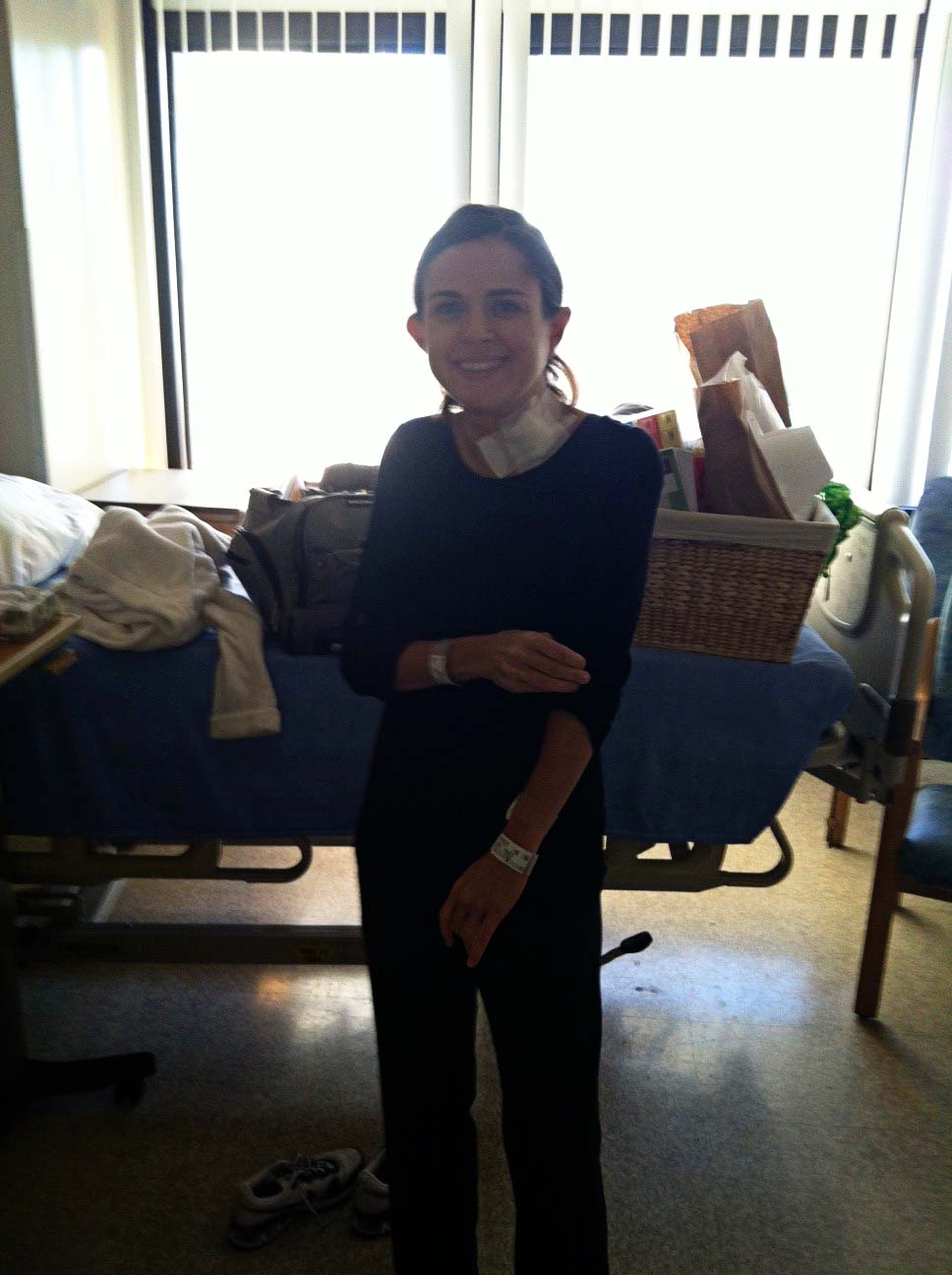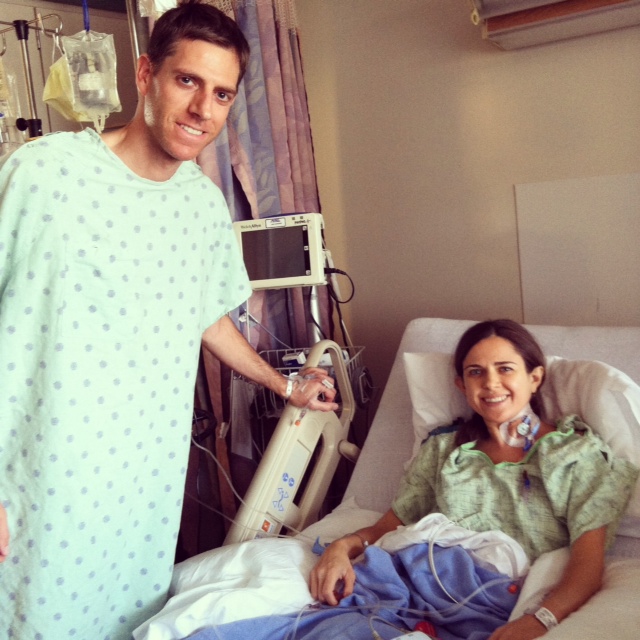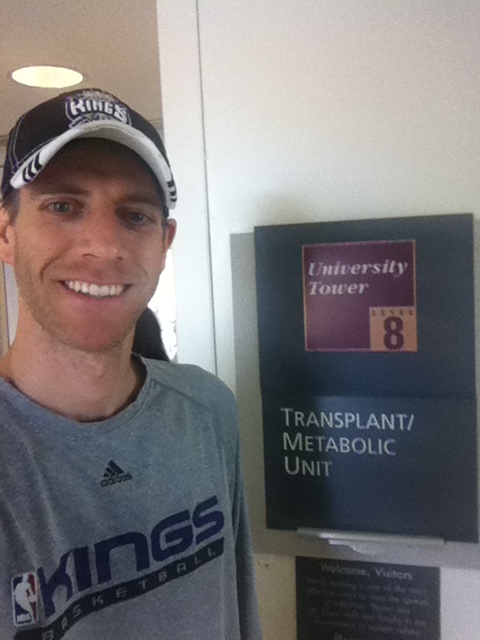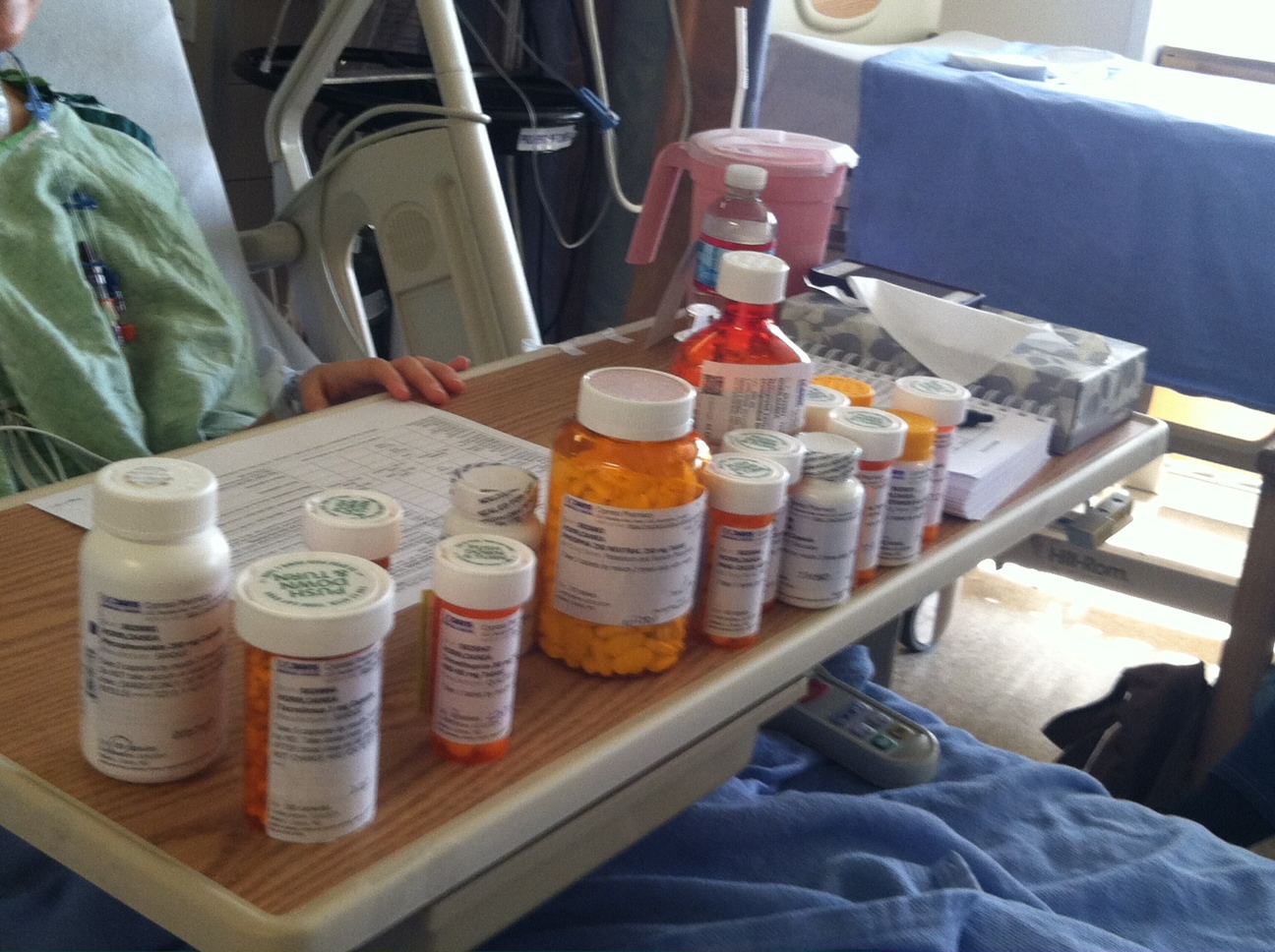Life is the hospital is all about routine – one that starts at 5:00AM. Each morning the nurse would wake me to get my vital signs, weight and draw blood. The next activity was a visit by the transplant residents. They would ask how I was doing, check my incision, listen to my heart and lungs and give me an update on my kidney function which was wonderfully improving. Breakfast came at 7:15AM, following by the arrival of my mom who would want an update on my kidney function and how I slept the night before.
The bulk of the days were filled with IV infusions, naps and an occasional walk with my amazing donor and husband. The transplant floor is a large square that we would shuffle laps around, and around, and around. Walking after surgery seems counter-intuitive, but that is the only way to regain your strength and get your body systems woken back up.
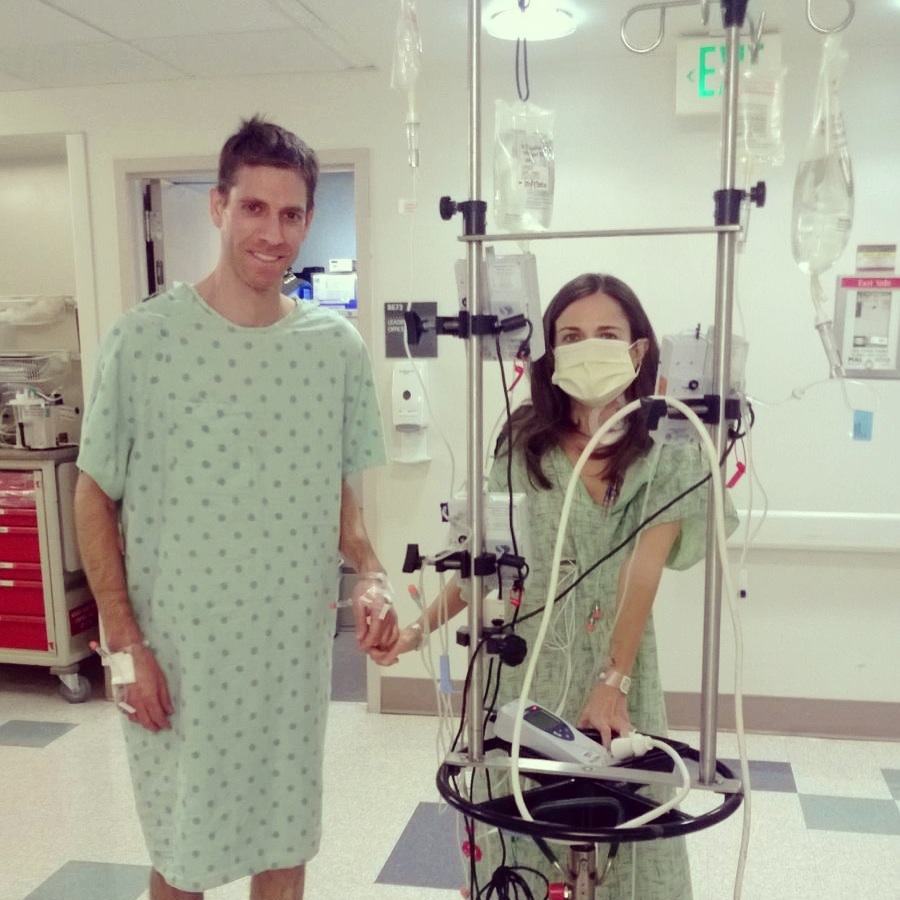
It is important for kidney transplant recipients to wear a mask when they are out of their hospital room because their immune system is suppressed.
The on call surgeon, nurse practitioner and accompanying transplant posse would do rounds just after lunch. The afternoon was punctuated by visitors, staff and more vital signs. After the second day, you get into the flow of hospital life. You watch the door to see whose coming by and even though the food is awful, you are thrilled to see the dinner cart headed your way. It’s the small things that keep the days moving.
The biggest part of being in the hospital with a transplant is the education. There is an entire team of people dedicated to helping you understand your new medications and how to live with a suppressed immune system. When our bodies detect a foreign invader in our system (a virus, bacteria, fungus, cancer cells,…) our immune system goes on attack. This is vitally important to keep us healthy; however, when the foreign invader is a very welcome kidney, you can have problems. To help the body accept the new kidney, transplant recipients must take a lifetime of immune suppression medication. While this helps prevent organ rejection, it also prevents my body from fighting off all of the other stuff that could make me sick.
We would have long conversations with the nurses about how to be around my dogs, avoiding crowds, hand washing, when to wear a mask, using sunscreen, what to do if Phillip catches a cold and lots of other precautions to take. The pharmacist would stop by to discuss my medications, including the side effects to watch for and what foods need to be avoided. I was frequently quizzed on what I was learning.
The first evening I got to my room the nurse wrote all of my medications on a white board facing my bed. He also taped up the signs of transplant rejection and infection. From the first moment you get to your room, they want you to become aware of your body and how to live successfully with a transplant. I was also given a transplant log and each time I was got a medication, I was asked to write the medication name, time and dosage in my log. The key to learning anything is repetition and transplant educators certainly know that.
Living with a suppressed immune system was the thing I was most worried about with the transplant. I know how amazing our immune systems are and I did not want to take a blow to mine. As overwhelming as the flow of information could be, it also put many of my fears at ease. Once you know how to keep yourself healthy, everything becomes less scary. Education shines a light where there was darkness before.
I will be the most immune suppressed for these first six months after transplant. Once my body gets used to Phillip’s kidney, we can back off on some of my medication. I will always have a suppressed immune system and need to be smart about avoiding germs, but it is the first six months that are the most severe. Sure there are a few bummer things: I can’t Christmas shop at the mall and I need to avoid eating in restaurants for six months (because you can’t be sure the food is prepared safely) but in the grand scheme of things, these are pennies to pay for an amazing gift.
I cannot say enough about how amazing the UC Davis transplant team is. We had phenomenal nurses. We kept saying that it seemed like each person we saw in the hospital really enjoyed their job. Everyone was friendly, responsive, unrushed and absolutely joyful. No one wants to be in the hospital, but this Thanksgiving I am deeply grateful for the people who cared for me. I know that the success of my procedure and resulting health since then is completely due to their dedication.
We went in for transplant surgery on a Monday. Phillip was discharged Thursday morning. He kept saying that discharging him meant discharging him to my hospital room. While that was mostly true, the first thing he did was go home to see our dogs, take a shower and have a long nap. He was still moving very slowly and needed the rest.
I got discharged Friday evening. In preparation for going home, they removed my catheter in the morning to make sure I could pee on my own…success! Next I had to take a written transplant care test to make sure I could successfully care for my new kidney . That afternoon the pharmacist came by with all of my medications and quizzed me on what I take, what it’s for, what the dose is, what needs to be avoided and the potential side effects. I was discharged on fifteen medications in three classes: immune suppression, anti-infectives (an anti-viral and an antibiotic) and maintenance medications (vitamins, acid reducers, electrolyte supplements, etc…) Immune suppression drugs are heavy hitters that need backup to protect your body and help them do their job…hence the large amount of meds.
The very last activity was removing the IV in my arm and my central line. A central line is a long IV that goes from your neck into your heart. I was really nervous about having the central line removed because the nurse was just going to pull it out while I was awake. Phillip held my hand. The bed was laid all the way back, the tape was removed and then the nurse had me take a deep breath while she pulled the IV out. Of course, it was way worse in my mind than the reality of it. Isn’t that almost always true?
Finally, I got to change into real people clothing and go HOME!!!
A short video Phillip took on discharge day.
Here are the first parts of our transplant journey:
Next up is settling in at home and our unfortunate bump in the road.
